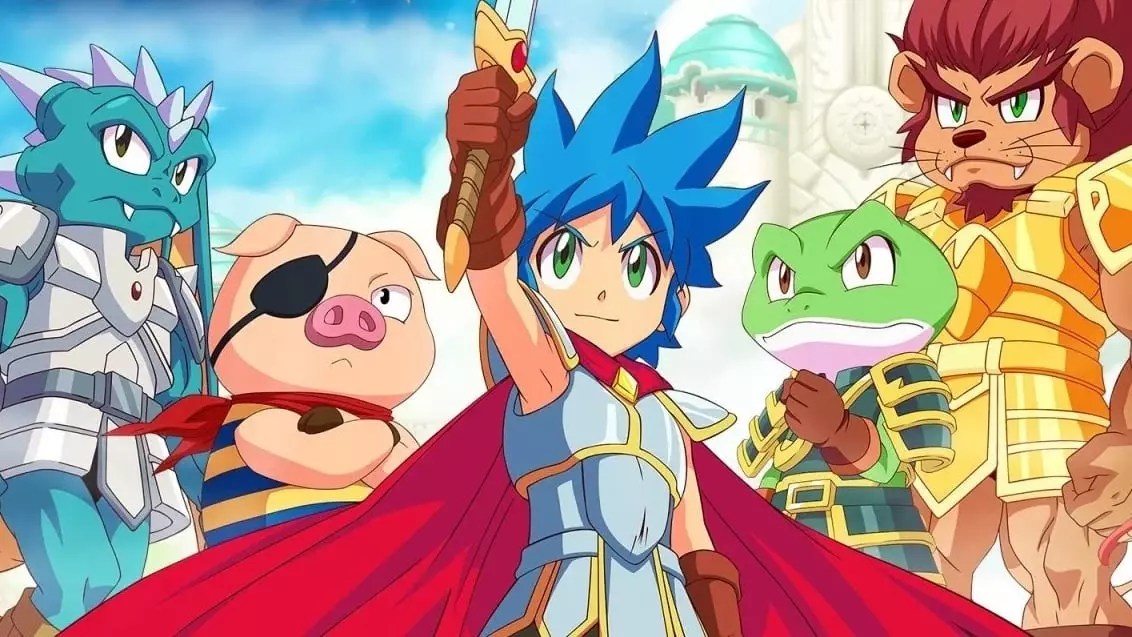As the gaming world gears up for the launch of the Nintendo Switch 2, excitement fills the air regarding how developers and publishers will adapt their titles for this next-gen console. One of the discussions currently unfolding centers around FDG Entertainment’s beloved 2D platformer, *Monster Boy and the Cursed Kingdom*. This charming game, which originally released in 2018, garnered considerable acclaim for its vibrant visual style and nostalgic gameplay, reminiscent of classic platforming from the gaming golden age. The prospect of a new version optimized for Switch 2, potentially supporting an unprecedented frame rate of 120fps, elevates the stakes for players and developers alike.
A Call to Community Engagement
FDG Entertainment recently reached out via social media, inviting feedback from gamers about their desire for this enhanced experience. They posed an interesting question: Would Nintendo’s future player base be eager for a *Monster Boy* update? This strategic move not only showcases the company’s commitment to community engagement but also highlights how integral player input is to the gaming experience today. By asking for opinions, FDG underscores the importance of interaction between developers and fans, something that is increasingly becoming a crucial element in the industry.
Evaluating Performance and Graphical Expectations
Currently, *Monster Boy and the Cursed Kingdom* runs at a commendable 60fps on the Switch. However, with technical advancements brought by the Switch 2, achieving 120fps is a tantalizing possibility. This upgrade would significantly improve gameplay smoothness and responsiveness, especially for a title that poses various platforming challenges. While the current iteration has been well-received and is available at a deeply discounted price in some regions, the enhanced frame rate could breathe new life into the experience. Players familiar with platforms like the Xbox Series X and PS5, which have previously implemented similar upgrades, are likely to applaud such enhancements.
Nostalgia Meets Modern Technology
The allure of *Monster Boy* lies not only in gameplay mechanics but also in its aesthetic elements and sound design. It is an homage to a bygone era of gaming while leveraging modern technology for a fresh feel. When *Monster Boy* premiered, it was deemed a “tremendous accomplishment” combining old-school charm with contemporary innovations—a balance that not every game achieves. The chance to enjoy this title with enhanced performance features like 120fps would not only excite loyal fans but also attract a new audience intrigued by the retro style reimagined through the lens of modern hardware.
A Broader Development Landscape
The conversation around *Monster Boy* extends beyond FDG Entertainment’s endeavors. Other developers, like Shin’en Multimedia, are also dabbling with the idea of elevating their gameplay experiences with similar upgrades. The momentum around frame rate enhancements suggests a broader shift in player expectations as new consoles emerge. Gamers are increasingly anticipating seamless and dynamic gameplay that takes full advantage of evolving technology. FDG’s decision to gauge public interest signals a positive trend in the industry—one that prioritizes player feedback as a catalyst for innovation and improvement.
As the release of the Nintendo Switch 2 approaches, the anticipation surrounding titles such as *Monster Boy and the Cursed Kingdom* signals a thrilling future for fans of the genre. The potential improvements and the engagement shown by developers offer a glimpse into the harmonious relationship that can blossom between innovative technology and community-driven game development. The gaming landscape is becoming more vibrant, and we are excited to witness its evolution.


Leave a Reply